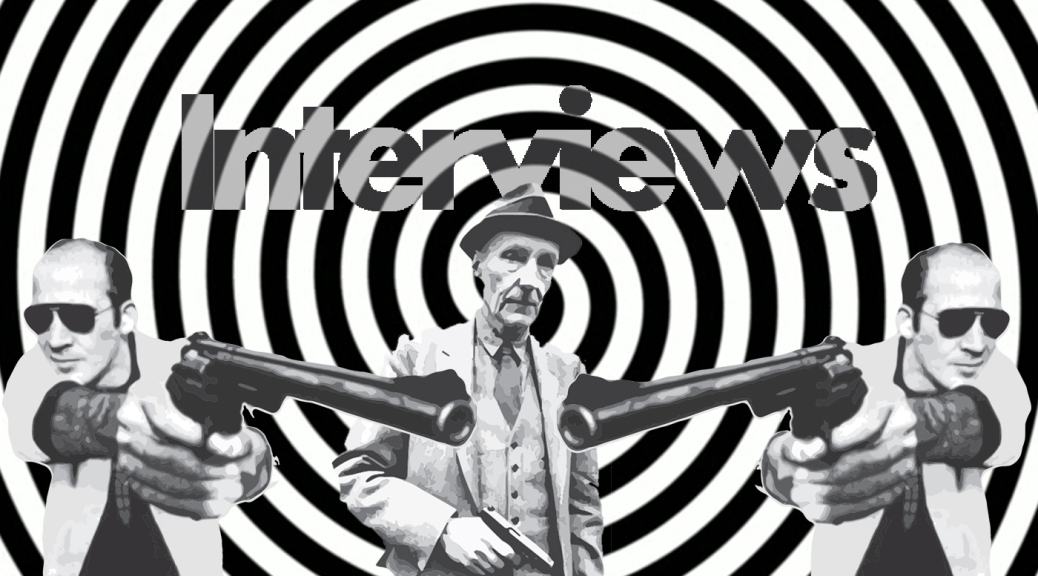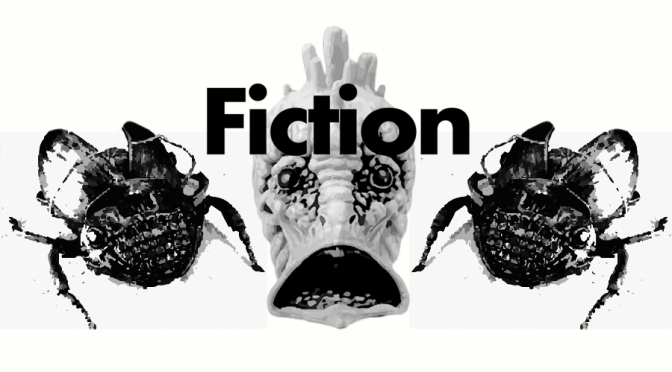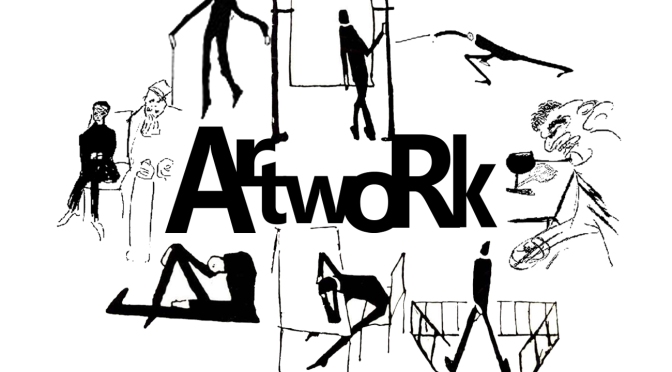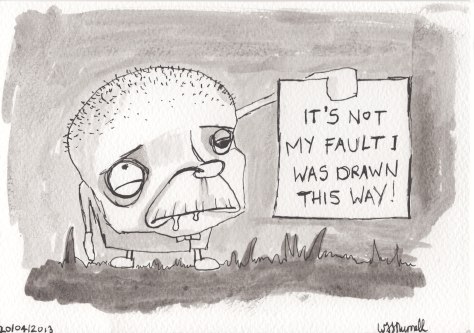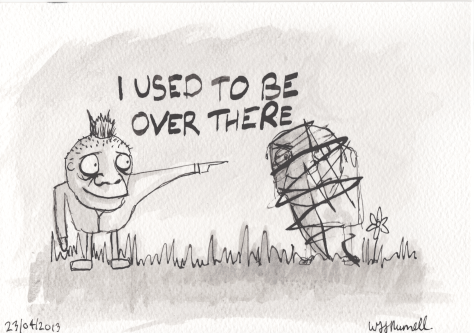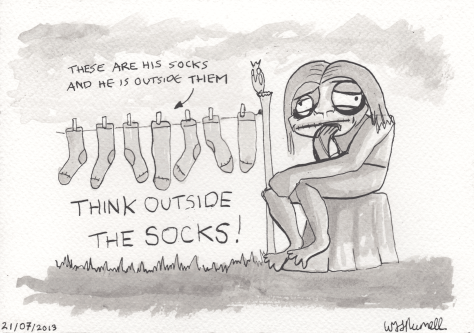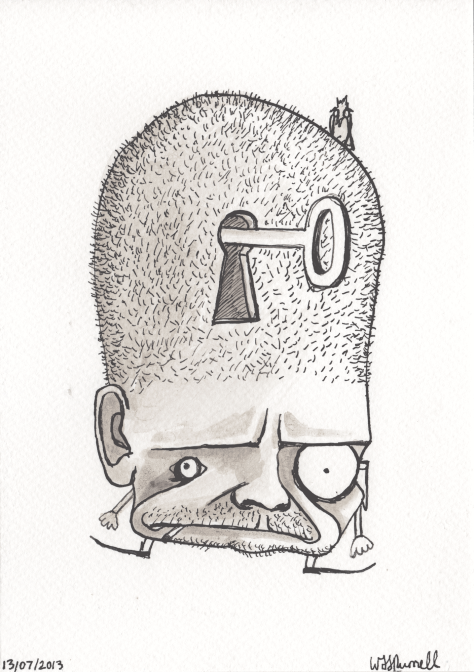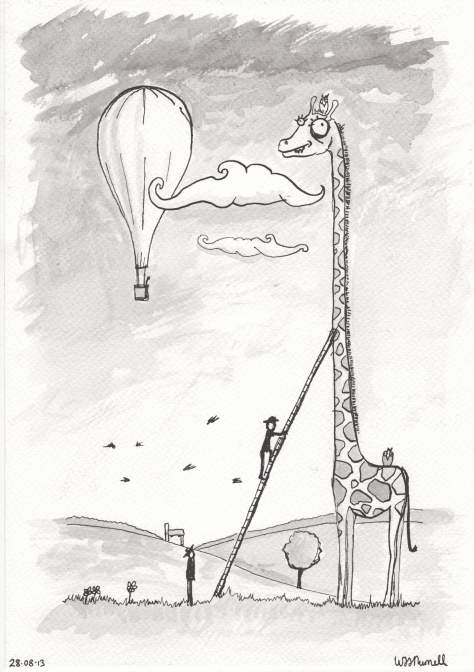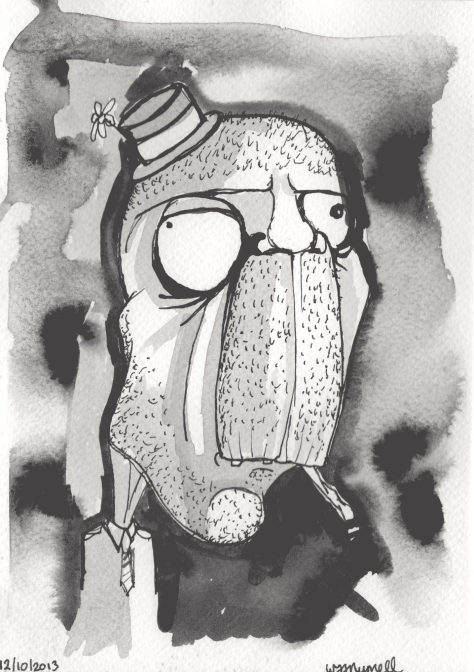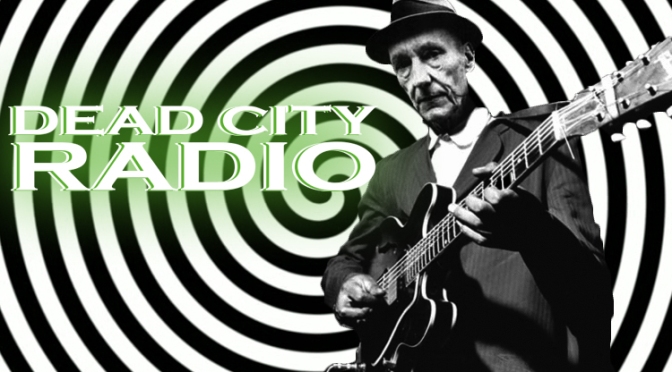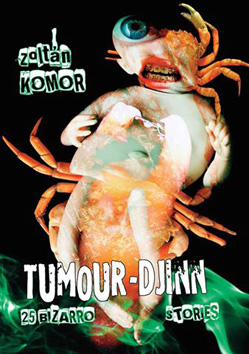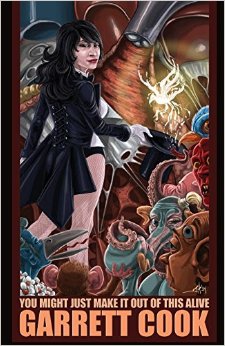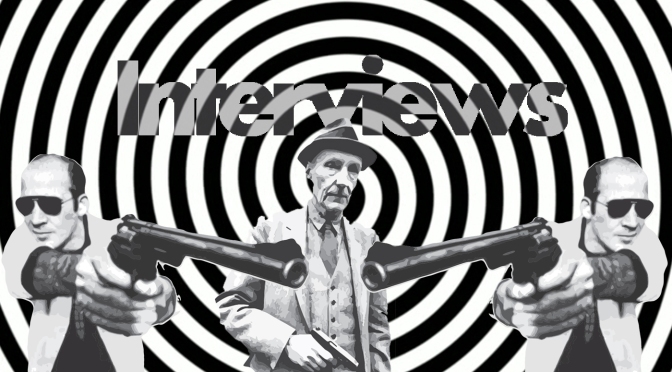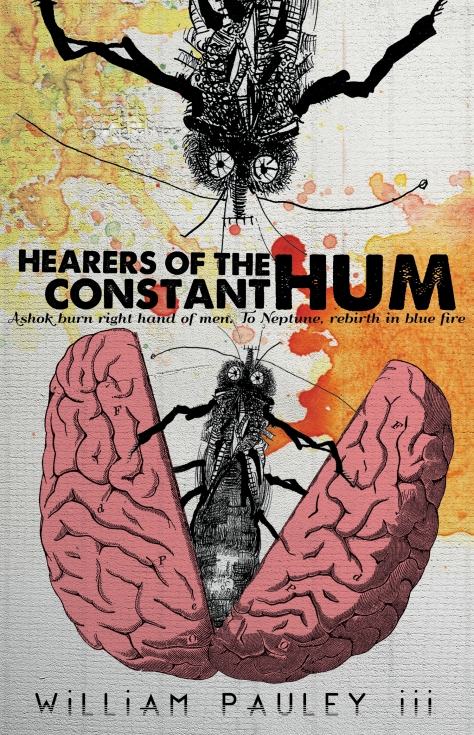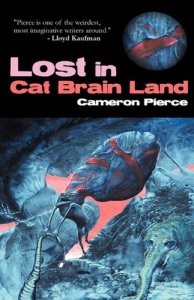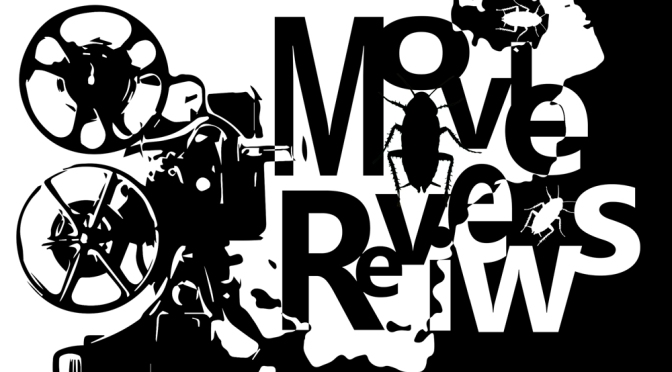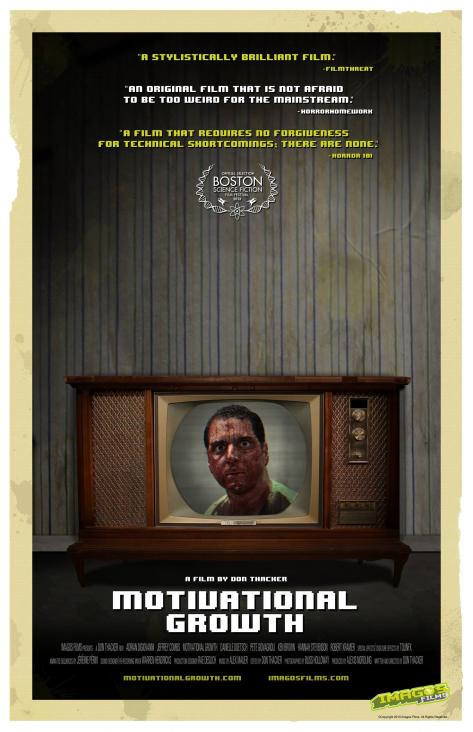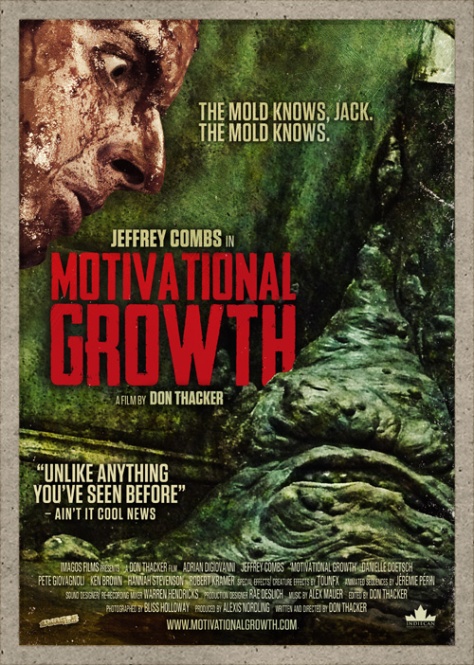His lips shone black with the blood of machines. His body trembled and his wings shook. His whole body was soaked in the stuff. The hot, thick globs of machine-blood were like liquor to him. A sweet, sweet nectar coating his throat and filling his body with warmth. More machines would be buzzing down the street after him shortly, but he was already drunk with madness. His brain was clouded with a haze which rendered all actions inconsequential to him. He didn’t give a fuck any more.
The machines were quick to hunt him down, but he was faster. They came into the alley with a burst of chaotic light vomiting into the damp dark space, the corpses of his victims still bleeding out. A long, low rolling sound echoed off the walls, a manhole cover spinning like a coin loudly coming to a stop. The machines crowded around the hole itself, flooding their light into the sewer system for a glimpse of the mothman. One by one they dropped into the sewer until the last of them found itself with an armoured claw gripping its neck as its body dangled in the hole. The mothman crushed the back of its neck against the edge of the hole and slammed the manhole cover against its head.
Once.
Twice.
Three times and its body went limp, its wings once magnetic, now still. He rolled the cover back over the hole and sat down on it. He pulled the thing’s head from its body, and the manhole cover sat flush with the alley. The body of the machine dropped into the fecal soup with a deep splosh.
The mothman loved watching the light leave their eyes. It was a sensation almost as addictive to him as drinking their black blood. The other machines whined and buzzed, but from the underside of the sewer they couldn’t create enough force to slide the mothman from the manhole cover.
A panicked and frenzied machine is a good machine, he thought to himself.
A dead machine is better.
He threw the head on top of the bodies of the other corpses and waited for the sewer beneath him to grow quiet. He waited for the machines to make their way through the sewer to the next nearest exit three blocks south. He waited, then he leapt into the air and spread his wings, becoming a distorted shadow in the sky.
The night is his domain. He would not be hunted so easily and next time—next time… he would not be so merciful.
###
Dawn came with the burning glow of hell. A giant sun on the horizon bearing the sickness of its age, great dark cancers carved upon its face. The markings formed the image of a dark red skull, ever-watching from so far away, a galactic doomsayer. The mothman woke in his home in the forest of dead things, where the skeletons of birds and trees and wolves and bees served a reminder to the mothman of the world that used to be. It reminded him of a life before the sun was dying and that the machines were hellbent on bringing this world to its inevitable extinction.
From the hollowed out tree that was his home, he climbed out into the forest canopy. A mass of twigs and bones carefully connected over the years separated the canopy from the floor. Once upon a time, he remembered when such canopies would grow naturally, and that they were vibrant shades of green and brown and red and yellow, not the bone-white that he now tread gently across as he headed deeper into the forest, turning his back on the steel and concrete city which was home to the apocalyptic machines.
In the forest he felt safe. While the machines often flew overhead in the night, they never entered the tangled mess of forest. Only their droning buzzing back and forth kept his sleep restless. Their lights blinded him, penetrating through the dead and fragile wood so thin, so transparent. Either they saw no need to explore the forest, or they had no desire.
The mothman liked to think there was a third explanation, that perhaps they were afraid of a certain mythic man-beast which lived there and was known to terrorise the machines with his insatiable bloodlust.
He reflected on this dream as his feet crunched on the dark, grainy sand as he walked towards the lake. The surface was smooth and undisturbed, a mirror image of the sky, an inverted skull smiling at him from the dark water. He ran his hands through it, scrubbing at the blood stuck to his exoskeleton, distorting the skull and sending the red sky into a frenzy.
The blood had leaked everywhere, stuck in the small gaps of his joints where his soft, fuzzy flesh lay hidden. The scrubbing of the arms soon turned into a full submersion in the water. He waded out, rotating his limbs in wide arcs to get the water moving through his joints. It was cool and refreshing on his aching body. He swam out to the point where his feet no longer touched the bottom. Then he let himself sink and he let the blood float away. Beneath the surface he opened his eyes—a clouded vision. Ghosts of fish swimming past him so close his body was spinning from the momentum. His wings were soft and loose, paper-thin moving about the water like a fish tail. Beautiful. Ethereal. Beneath the surface the marbled image of the sun almost looked whole and healthy. He smiled and saw other living things, birds, beetles, rabbits, bears. A human. A child. Beautiful. Kind. Touching trees and flowers with such wonder it made the world feel like magic. Such wonder that in those times it was the mothman who was displaced, not the machines.
In that moment, the surface of the water was broken. The sharp, narrow snout of a fox, jaws snapping up a phantom fish for itself. A real fox and a real fish, neither creature had the mothman seen in such a long, long time. Just machines. He couldn’t be sure if he could trust his eyes. Or his mind, processing an elaborate vision. An apparition or a dream. His body floated to the surface and his head gently lifted out.
There was the fox.
At the edge of the lake with a fish sideways in its mouth. Inverted in the reflection, there was the fox. The mothman felt as though his mind had been jump-started with a thousand volts. And what else? he thought. And what else could be living out here that he doesn’t yet know about.
The excessive rush of light and sound of machines passing overhead. They flew so low they gave the water shivers. The mothman peeled his eyes from the fox for one moment, and then it was gone. Like a ghost. Like it never existed at all.
###
The city seemed always to be spawning more and more machines with each passing day. He couldn’t kill them fast enough. He was addicted to their blood, though their flesh had nothing to offer, though it sustained him through the post-human years, though the slaughter was fun, he was viciously outnumbered. Strength in numbers. He was just a party of one. Not only that, but the machines seemed to be building themselves bigger and stronger, forming a collective hive-consciousness throughout their technological sprawl, and when the smaller ones died, they were replaced by machines more vicious and destructive. Their lights were brighter too, almost blinding. To catch a mothman, blind the fucker right out of the sky. Burn him with the heat of a thousand suns. Rip him limb-from-god-damn-limb and stomp his face to insect-mush.
Do unto others as they would do unto you.
He would hunt them through the city as long as they would hunt him down. He would crave their blood, he would starve for it. He would spend the following days and weeks and months ripping those machines apart, thrashing and biting into their veins before the life has left their bodies. He would rip the lights from their skulls and collect them in the sewer while none of them were watching. He would steal them out into the forest where below the canopy, in what little shelter he had, the mothman worked on his own retina-destroying torch.
That was the easy part.
What he needed next was a power source. A machine still living, pulled under his control so he could bring it to the forest, the first of its kind to set foot in the place, and light up the night sky like no mere machine had done before.
###
He was in a hollowed out building on the edge of town, watching from the shadows from the corner of the window.
The machines were now too big to fit inside the buildings. They could no longer fit down the alleys. They would never set foot in the sewers again. They had the power, but the mothman had the tactical advantage. The machines kept to the streets, and the larger of them remained in cleared out concrete lots, war machines waiting to be deployed.
The mothman picked off the smallest of them to give him the energy and the buzz to stay alert and focused. They were on the hunt. They were always on the hunt now, but the mothman was determined to have his fill of machine-blood and destruction before his time ran up.
The city was now a constant drone of magnetic wings and scorching lights.
The mothman had to move carefully. He matched their movements so as to remain in the folds of darkness cast out by their light. He moved through the city by sticking to the shadows and the narrow spaces between buildings where the enlarged machines couldn’t reach. The further he went into the city, the larger the machines became. They carelessly demolished small buildings. The roads cracked beneath their weight. Their lights burned brighter than the sun, even when it was healthy. And with the torch that the mothman had built, he would have to harvest himself a big machine.
He saw it so far away, and he knew it was the one. It was a mountain formed out of metal, hundreds of eyes, thousands of limbs, millions of small magnetic wings, along with dozens of giant magnetic wings, a giant dark shadow hovering brilliantly over the city. He imagined its glorious blood pooling out from so many places as it flew high over the buildings and the streets, raining the black blood down on all the lesser beings festering below. He had grown so used to navigating the city around the machines that he approached the monolithic machine with ease. None of the other machines with their blistering lights saw a damn thing.
Up close, he saw what the robots were really doing. Most of their parts had come from scrap harvested from all over the place, but this creature, and some of the other grotesquely misshapen machines around had been pieced together with the unrefined parts of their dead ones. This was a colossal monster of machines previously executed and brought back only to go through the whole process again.
What the mothman really needed now was control.
He climbed the mountain of dead machines and fought off every machine which tried to stop him. He ripped off their wings with his bare hands. He ripped their throats out with his teeth. Afterwards, he would surely need a deep soak in the lake to cleanse his skin of their greasy blood.
His hands and feet grappled whatever small jutting bit of metal they could reach or whatever crevice they could dig themselves into. His feet burned as they pushed, his arms ached as they pulled. His wings gave him that extra bit of lift needed to leap to the next handhold and maintain it until he found his footing.
He found himself sinking into a rhythm as he climbed what he imagined to be the machine’s spine. Other machines flew up and onto the giant, scrambling towards the mothman, ready to smash, slash, slice, and puncture him to a bloody pulp death. Whenever one came close enough he flew off and up and landed higher, kept climbing. He was quick, nimble. From above he could rip off dead machine parts and toss them at the lesser machines.
At the top he was untouchable. He was a fucking menace to the machines. He ripped and slashed and gouged and tore the machines to pieces. He tossed their carcases down the mountain-machine to the streets. He had no sympathy for them. He tore into the mass of dead machine rendered a living mass of destruction. His fingers pried it open and burst the tubes pumping blood through its body. His fingers explored through the surface until he came upon a protective shell. A skeleton to break through before he could reach the inner workings, before he could bring it under his control. Guts were everywhere. Blood was drenching everything slick and wet. Inside the twisted mass of metal he closed the hole above him to keep the other machines out. He could feel it on his skin. The prickling electricity. The pulse of life inside this metallic shell, this magnetic body. The deeper he explored the more he felt and saw and understood. As the machines formed around the hole through which the mothman had disappeared, their buzzing drone grew louder, as did the buzzing of the mountain-machine. It began to fly above the city and away towards the forest. And it was the mothman controlling it all the way.
###
He stood on the forest floor, poised ready for flight at a moment’s notice. A machine lay down, body slowly rising and falling with the pulse of its energy, although it lacked the aggression to fight the mothman. He climbed on top of the machine and it wandered almost drunkenly down a beaten path almost erased. The outer casing of its head was discarded behind them, and the mothman had his fingers deep inside the machine’s head, playing with the idea that he could make a machine do exactly what he wanted. This was his test run before going for a more scale-appropriate machine for the blinding light-weapon he had fashioned with which to defend himself.
The machine was four times as large as the mothman, but was the smallest machine he could find. With his hands in the machine’s head, the mothman sent it running across a clearing. It lost its footing, crashed into a tree and threw him off into the dirt. As he dusted himself off and pulled himself up, he caught a glimpse of what he thought was the shadow of a fox darting away as the tree itself came collapsing down. The machine did not pick itself back up. It could not pick itself back up. Its consciousness was in his fingers. The fox whether same or different, real or imagined, was lurking around his peripherals, taunting, tricking. A cunning game of distraction. As the tree made contact with the ground it turned to a mess of dry, scattered splinters. It was once a tree in image, but the substance and strength of it had died long ago.
With his hands he called the machine back into motion and commanded it like he was its puppet master once again. He was its champion. He gave it the power to walk. He gave it the power of coordination. He gave it the power of flight, and then it became the first war machine he could call his own. He was connected. He was in control. He could use it to fight his battles for him, but for how long? He killed it completely and drank its machine-blood to get a thirst for the prize. He returned to the city to harvest himself the biggest machine they had. To turn a weapon against its own people. To destroy the machines and to let the sun die in peace.
###
He had never known power quite like this. It was a beautiful and terrifying thing. No wonder the machines could not control it. No wonder they could not contain it. No wonder they hungered for more. The machines swarmed the mountain-machine to take it down, but its entire being was controlled by the mothman. He made the mountain reach giant hands out and crush the machines like flies. The larger ones he knocked out of the sky with a swooping fist sending them off balance with broken wings. The machines latched on and greatly outnumbered the mothman, more than he could destroy, they latched on to his metallic shell and climbed over him in search for an entrance to the fleshy puppet-master within, to do something which would bring the hijacked beast to a grinding halt. They were a manic hoard and they gradually peeled back the layers of the mountain’s skin. They tore off chunks of it and tossed them down to earth. A trail of machine parts littering the way from the city to the forest.
In his home, the mothman had the tactical advantage of knowing his surroundings. Unfortunately, the machine he controlled was too big to manoeuvre through it. He tore down the big dead trees, canopy crashing down, as he endeavoured to cannonball his way through to the weapon which awaited his return. He set the mountain-machine down near enough to it and shook loose all the scraps which had accumulated and all the smaller machines which weighed it down. He peeled off an entire layer of the mountain-machine’s armour and suddenly it was much lighter, stronger, more manoeuvrable. It transformed from a mountain-machine into a colossal machine-warrior. It grabbed the torch light and fixed it to its head. The light came on and scorched the sky, leaving burn marks in the air. With dozens of nimble mechanical limbs crushing down on the attacking machines, the mothman defended his legacy, and with his blinding new weapon shining down on the swarm of machines, he melted them into a bubbling metallic mirror soup.
He thought himself invincible, but while he melted a great number of them to oblivion, an even greater number, machines almost half as tall tackled his champion down and ripped his fleshy body from the machine shell which encased him. The giant machine-warrior fell limp and the mothman felt his wings rip from his body and his bones crunch into a million splintered pieces. He fell in slow motion from high above the trees back to earth, slowly, red sky bleeding, burning skull sun dying, a sickness of man and machine. The face of the sun in his last dying moments looking less like a skull and more like the face of a fox. A cunning creature whose ghost had outlived his own. An idea which refused to be destroyed. Were his eyes gazing upon a different sun? A new sun which dawned a new age beyond the setting of the final skull?
His body was the last living thing to commit itself to the earth as the earth transitioned into a new state of post-flesh consciousness. There was no fox or fish or mothman. The machines were not real. They were an imagined state of being. They held no real autonomy in this reality. As the mothman ceased to exist, they too slipped into extinction because of it. They existed because of him, and they lost the war because they destroyed him.
###
The ground quaked terribly, a vicious tremor which levelled all the trees. It cracked open like a giant human mouth and swallowed the body of the mothman. It absorbed his body into the land so that he could continue his eternal journey as a part of all things. He became one with the cosmos. He died so that he could live forever.
And then the earth swelled as if pregnant with life. A warm, glowing mountain-womb of terrain rising up smiling and ready to burst forth new life. A billion infant anthropomorphic moths, a billion moth men and moth women birthed outwards into the world. And it was a beautiful thing. And the collective consciousness of the world was golden and kind. All was forgiven. In youth the cycle repeats itself and forever it would be this way until the end of time.
###
“What the fuck did I just read?” the woman said, tossing the mess of paper to her bedside table.
“The Mothman Cometh! The greatest epic battle between beast and machine that was ever chronicled throughout all time!” He was kneeling on the bed excitedly waiting for her enthusiasm to kick in.
“What? It made no sense! Mothmen. Machines? What. Why can’t you just write something normal?”
He slumped a little. She was not enthused. “What’s not to get? It is what it is. Who cares if it doesn’t make sense.”
“I do. I care. There’s no reason for any of this to happen. It’s just random stuff happening because you think it’s awesome. There’s no meaning to the story.”
“Sure there is. There’s plenty of meaning to it.”
“Okay. Humour me. What’s it about?”
“Well, there’s the lonely mothman, who is immortal. He’s been around forever, so he’s seen civilisations rise and fall. He’s been the subject of fear and paranoia, an outcast from the human race, despite not being terribly unlike them. So he’s this brooding isolated figure who has seen all life as we know it die. He’s lived through to a post-apocalyptic wasteland where, of course, the machines are the only thing left surviving. It’s the last remaining legacy of humanity, and it’s this poisoned concept that’s ruining the earth. Everything has lost its substance. Everything is dead or an emotionless machine.”
“And what the fuck does that mean?”
“It means that life is pretty fucking bleak if you think about it. You don’t know who or what will be around after you’re gone. I’ve just written about two different sides of humanity colliding after humanity ceases to be a thing. The mothman represents preservation and the machines represent consumption. And of course the machines use light to lure the mothman out, but he’s been around for so long he’s become desensitized to it. He’s sick of it. He just wants to wipe out the machines and get on with his life. But the machines can’t just be destroyed so easily. They’re a disease. A plague.”
“You think people will get all that from reading your story?”
“Why not. Even if they don’t consciously think about all the finer details, they’ll understand the general impression of it.”
“Yeah, well I still think it’s stupid. What the fuck was up with the sun? And the fox? Was it even a real thing?”
“That’s for the reader to decide for themselves.”
“Was it real?”
“No.”
“I fucking knew it. And the sun? Suns don’t die like that.”
“It’s a story. The sun can do whatever it wants. The sun can be a giant kitten which rolls across the earth swatting at trees and setting them on fire. The sun can be a spaceship which orbits the earth and shoots down anything which tries to get in its way. The sun can be—“
“I get it already! Fuck. Whatever.”
“So you didn’t like the story?”
She sighed. “It just didn’t make sense to me. I don’t hate it. I just don’t understand why you would make all this shit up.”
“Okay,” he said. He lay down in bed and pretended not to feel hurt.
“I mean, it could be worse,” she said. “You could have ended it with a stupid meta scene where it was all a story written by an author and he debates with his girlfriend the entire point of the story.”
“Oh my god,” he said, sitting up. “That would be amazing!”
 S.T. Cartledge is the author of House Hunter and Day of the Milkman. When he is not writing or working he enjoys reading manga and watching anime.
S.T. Cartledge is the author of House Hunter and Day of the Milkman. When he is not writing or working he enjoys reading manga and watching anime.

